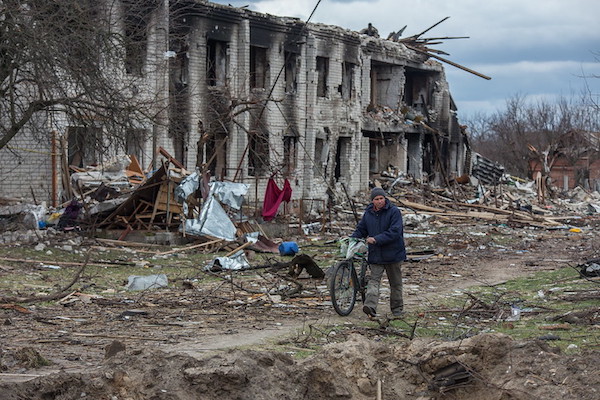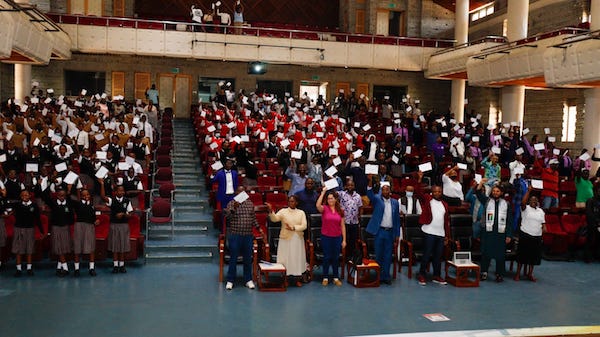The Letter: A Message for our Earth, the film based on the papal encyclical Laudato Si’, premiered in Nairobi on 15 October.
In its first screening in Africa at the Catholic University of Eastern Africa, an audience of hundreds – including Catholic clergy, university and high school students and some Muslim leaders – watched the film.
“We are thrilled by the journey that Pope Francis' encyclical, Laudato Si’ is taking,” said Prince Papa, the Africa Programmes Manager for Laudato Si’ Movement.
“We are seeing how the message is inspiring informational evolution. From a book, it inspired the establishment of Laudato Si’ Movement, the Laudato Si’ Action Platform and now the Laudato Si’ movie, The Letter.”
The film has arrived in eastern Africa when millions of people are struggling with severe drought related to climate change. Catholic churches and relief agencies are responding to the ensuing food shortages.
At least 36 million people in Kenya, Somalia and Ethiopia are affected by the drought, the worst in the region in 40 years, according to the UN.
Papa said the encyclical had touched many people’s lives worldwide and had given them hope for a better future. It had raised the hope for global solidarity in the fight for ecological and climate justice.
“I believe this movie is an extension to our work, to ensure that Laudato Si’ dialogue reaches the maximum number of people in the world, in a form most welcomed by the world today,” he said.
An interactive discussion on climate change followed the screening.
“Today we are gathered here to hear loud and clear the call to respond to climate change by watching the film The Letter,” said Fr Peter Mbaru, the director of the Centre for Social Justice and Ethics at the university, explaining that the exploitation and disruption of the natural systems has serious consequences on all sectors of society.
“The fundamental message has been that we have a moral obligation to care for the environment, to respect all of God’s creation and to assure that its goods are equitably shared with all,” he said.
Mbaru called for the respect of the environment and equitable sharing of earth's resources
“This means that since we are part of the community of God’s creation, to destroy the environment is destroying ourselves,” he said.



 Loading ...
Loading ...